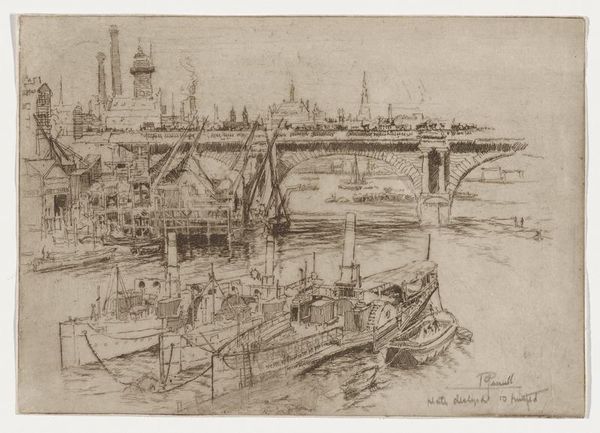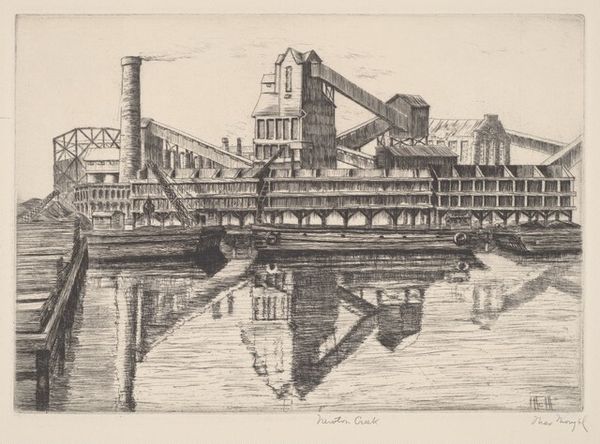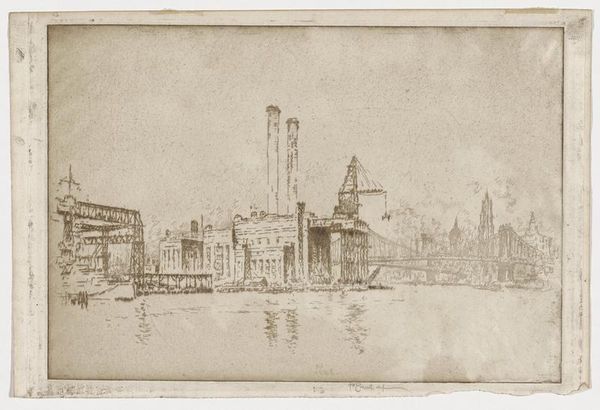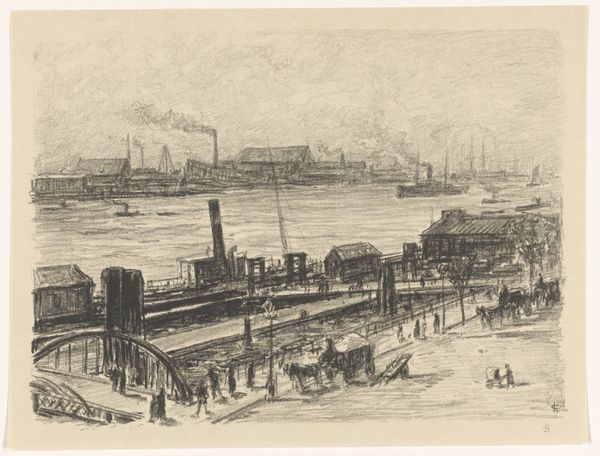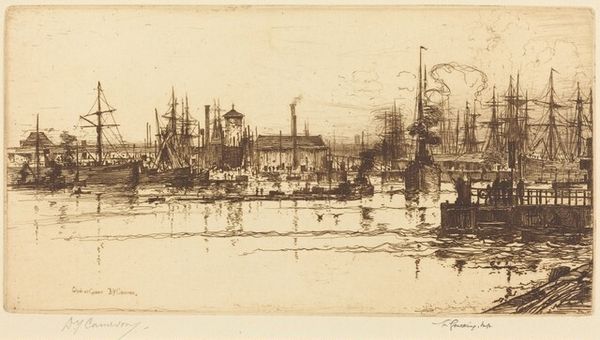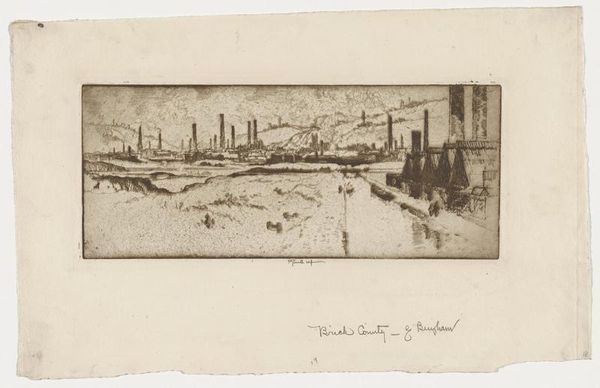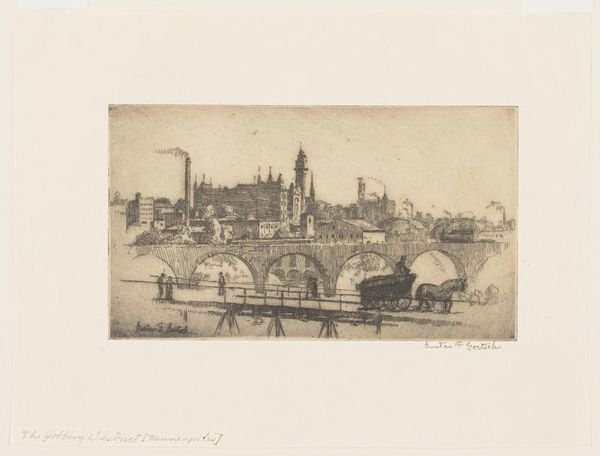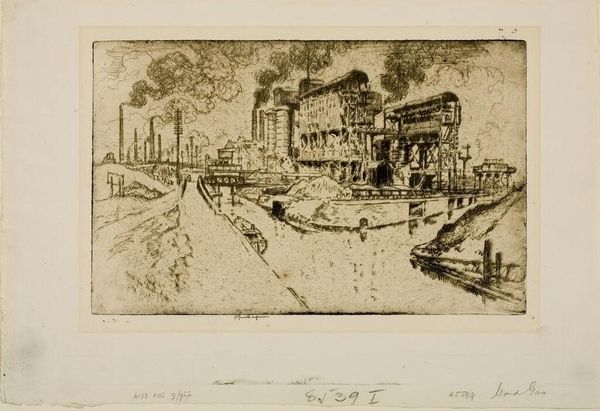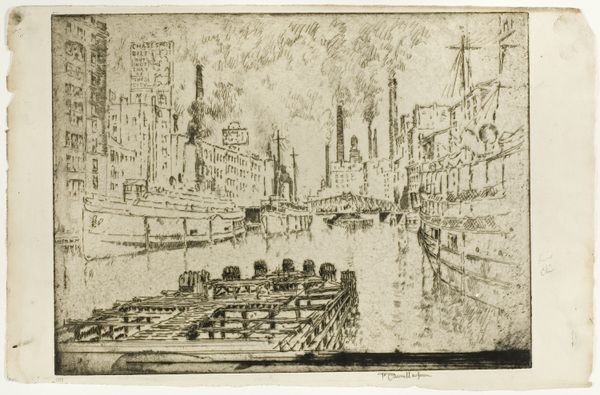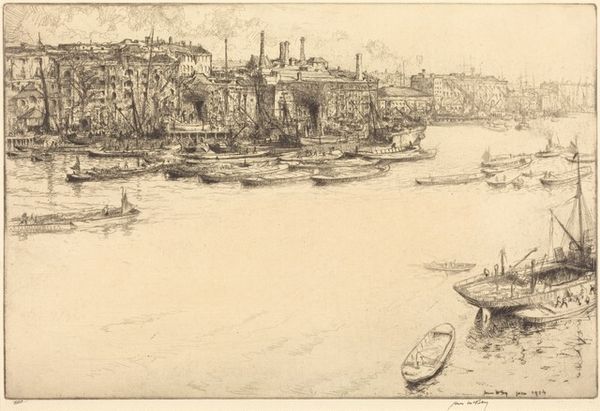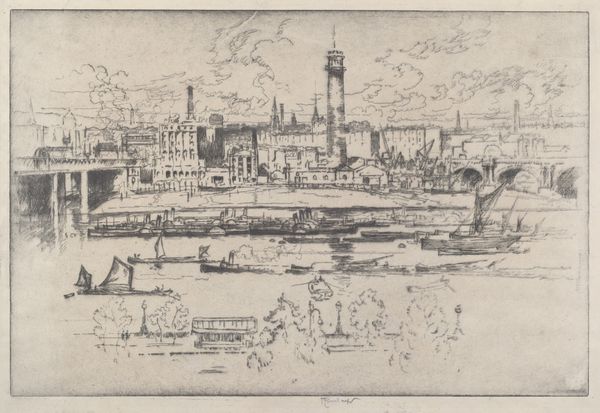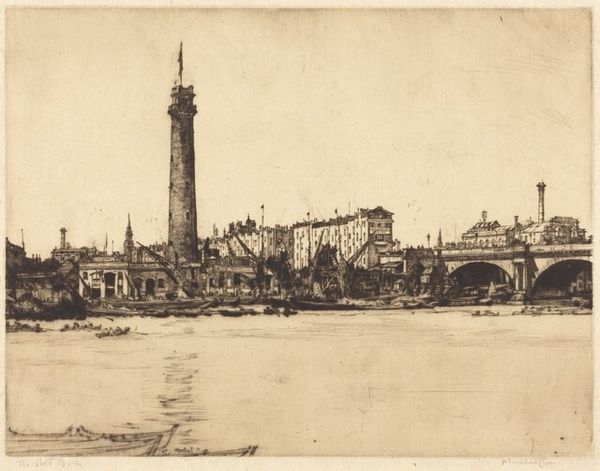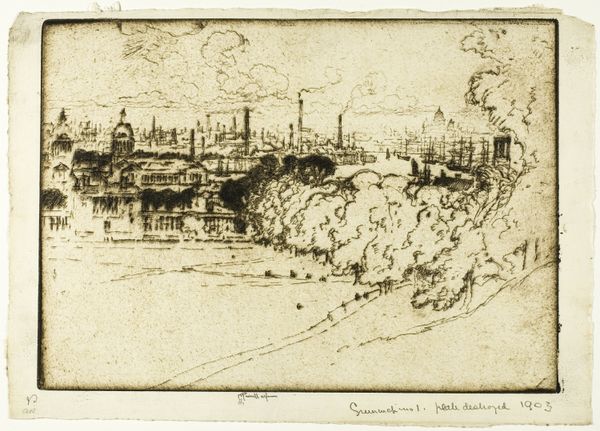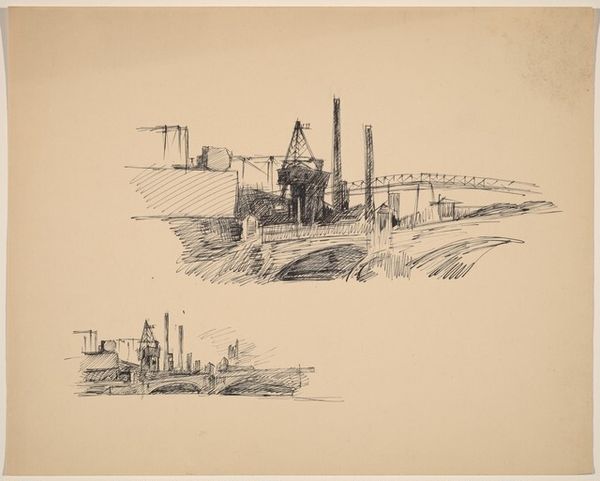
print, etching
# print
#
etching
#
landscape
#
etching
#
cityscape
Dimensions: 8 9/16 x 11 in. (21.75 x 27.94 cm) (plate)9 x 11 3/4 in. (22.86 x 29.85 cm) (sheet)
Copyright: No Copyright - United States
Editor: Here we have Joseph Pennell's 1906 etching, "Waterloo Towers," which is part of the Minneapolis Institute of Art collection. It presents a very industrial cityscape with what seems to be a river bustling with boats in the foreground. The mood is, for me, somewhat bleak yet also conveys the energetic activity of a working city. What's your take on this piece? Curator: It's a powerful visual statement, isn't it? Pennell, an American expatriate, captures the monumental scale of industrial architecture during a period of immense social change and also political discourse. Notice how the artist focuses on factories, towers, and the bridge itself, emphasizing a certain tension and alienation, yet celebrating progress. It presents a starkly masculine vision of progress that often marginalizes those communities most directly impacted by its potentially harmful consequences. What effect do you think the medium of etching has on this particular statement? Editor: The etching gives it a sort of grainy, almost dreamlike quality, which softens the harshness. It also hints at the layered history of this industrial landscape. It’s interesting how Pennell's artistic choices affect its overall message, because I get a feeling that the artist finds the topic to be ambiguous: that technological progress is promising but dangerous at the same time. Curator: Exactly. How might we interpret the artist's focus on this type of monumental, "productive" scene given the historical and social landscape of early 20th century America? What political undercurrents do you see? What class values might be revealed in the choice to show these particular buildings and not people, other than workers, as part of the landscape? Editor: That's a fantastic question. The lack of residential areas, for example, indicates a deliberate erasure. It seems as though Pennell is deliberately turning his back to the marginalized. It is amazing how much is conveyed not only by what's represented, but also what's purposefully left out. Curator: Yes, it makes you reflect on what is being prioritized during times of industrial development, progress for whom? Editor: Thanks for sharing that. I’m walking away with so many new thoughts and interpretations.
Comments
No comments
Be the first to comment and join the conversation on the ultimate creative platform.
